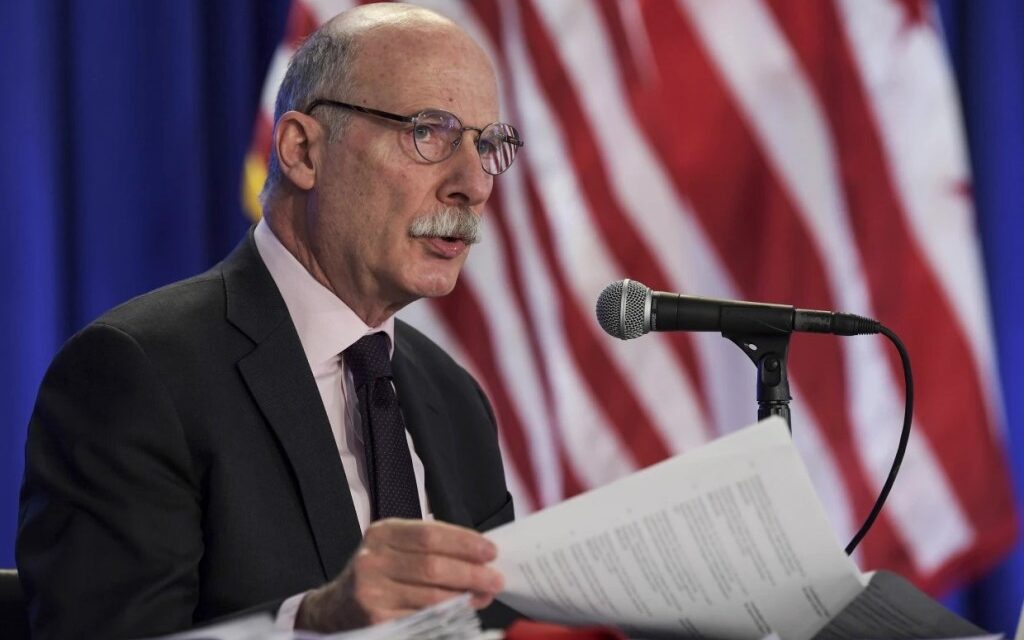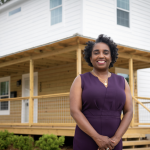By Tashi McQueen
AFRO Political Writer
tmcqueen@afro.com
With time steadily winding down in the D.C. budget process, the D.C. Council passed the fiscal year (FY25) 2025 budget to second reading with a majority vote on May 29. If the budget advances from second reading on June 12, then it will go to Mayor Muriel Bowser’s desk to either be signed into law, enacted without a signature or vetoed.
“When the mayor transmitted her proposed budget, many criticized the proposed budget for not being about shared sacrifice and instead hitting low-income citizens the hardest,” said Chairman Phil Mendelson (D) during the budget meeting on May 29. “For instance, cutting the Access to Justice Program by about 60 percent, cutting domestic violence programming, cutting the Emergency Rental Assistance Program by over 50 percent, adding no new vouchers for affordable housing.”

According to Mendelson, the budget that the council advanced restores Access to Justice funds to about $31 million, funds 200 new housing vouchers for qualifying D.C. residents, provides $5 million for the Housing Preservation Fund, and establishes a child tax credit at $15 million.
The D.C. Access to Justice Commission is an initiative created by the D.C. Court of Appeals in 2005 to improve low-to-moderate-income individuals’ access to the criminal justice system. They help prevent evictions, support survivors of domestic violence, services to address employment-related problems and more.
“In 2023, more than 40,000 residents benefited from Access to Justice Services,” said Mendelson.
The council’s budget includes raised taxes for employers and residential property taxes for homes valued over $2.5 million. Under the council’s proposal, the payroll tax employers pay for each of their employees’ wages has increased to 0.75 percent from 0.26 percent to cover costs related to the District’s universal paid leave program.
As well, through the council’s proposal, properties valued at more than $2.5 million will be taxed at the rate of 85 cents per $100 of assessed value for the first $2.5 million. For every $100 above the $2.5 million threshold, the property will be taxed at a rate of $1 per $100 of assessed value.
The council’s proposed budget will increase the mayor’s proposed budget by about $40 million.
According to Mendelson, “the budget that the mayor submitted to the council was roughly a billion dollars more than the current year budget. The council’s actions do not add much to that.”
The bill also permits funding for one additional teaching position in each Ward 7 and 8 elementary school.
“Those are the wards, the schools that have the highest concentration of at-risk students,” said Mendelson.
Councilmembers voted on the Fiscal Year (FY) 2025 Local Budget Act of 2024 and the Fiscal Year 2025 Budget Support Act of 2024. Councilmember Trayon White was the singular no vote on both bills, though several councilmembers had reservations about the budget and plan to work on them before the legislation is taken up for a final vote on June 12, the last day for the council to take action on the budget.
In Mayor Muriel Bowser’s proposed budget, she cut the D.C. circulator due to low ridership to balance the budget. Bowser said they will “go all in on METRO.” D.C. had to deal with balancing a $700 million budget shortfall this fiscal year.
The post D.C. Council advances FY25 budget appeared first on AFRO American Newspapers.










